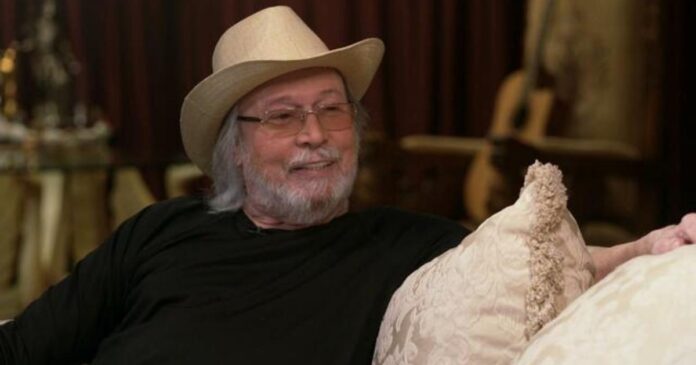Barry Gibb, renowned as one of the most successful songwriters of all time, was celebrated earlier this month at the Kennedy Center Honors along with Billy Crystal, Renée Fleming, Queen Latifah and Dionne Warwick.
“I don’t know why … why are you giving it to me?” Gibb asked of the honor with a laugh. “But I am very proud.”
Gibb, a member of the legendary group The Bee Gees, has crafted an enduring legacy in the world of popular music. With a career spanning decades, he’s known for his profound lyrics and captivating melodies.
But it was a near-fatal childhood accident that not only shaped his personal life but also deeply impacted his approach to music and songwriting.
At just 2 years old, Gibb endured a traumatic experience when he accidentally pulled a pan of boiling water over himself.
“I had about 20 minutes to live,” Gibb said. “I spent two years in hospital and after I came out, I never said a word for another two years.”
He said he doesn’t remember what happened and still has scars from the incident.
After years of recovery, Gibb said he emerged from this ordeal with an “instinct about music, about life, about everything.”
Gibb’s songwriting genius has produced 16 No. 1 songs, many alongside his brothers Robin and Maurice. Their journey began with soulful ballads in the late 60s, later transforming the 70s music scene with their dance anthems. The Bee Gees’ fame soared with the iconic “Saturday Night Fever” soundtrack, solidifying their place in music history with hits like “Stayin’ Alive.”
And The Bee Gees are the only band other than The Beatles to score six straight No. 1 songs.
“Listen, we’ve written a lot of songs that were great and we’ve written a lot of crap … And that’s how it works,” said Gibb. “But what I discovered over the years is if you don’t have failure, you can’t have success. Because every time you fail, you learn something.”
Despite the group’s immense success, Gibb admitted to experiencing tensions and misunderstandings among the brothers, especially regarding recognition within the group.
“The trouble with fame is it takes over everything and it makes you competitive,” said Gibb. “And if you’re in a group you can’t really compete against each other.”
Sadly, Gibb wasn’t on good terms with his brothers when they passed away. Maurice died in 2003 and Robin died in 2012. But Gibb said he gained a deeper understanding of their feelings a couple of years ago.
“I understand now. I understand a lot more. I understand what made them unhappy. They were right. Because it was a group and we should have all been supporting each other much more than we did. I got too much attention. Robin didn’t get enough. And Mo certainly didn’t get enough,” said Gibb.
The Bee Gees’ influence extended beyond their own recordings, as they wrote hits for several other artists, including Dolly Parton, Kenny Rogers, Barbra Streisand and Frankie Valli. Gibb humorously recounted his surprise at being asked to write the title track for the film “Grease,” a song that stands out in his vast catalog.
When asked if he was considering selling his catalog, Gibb said it had crossed his mind.
“I’m thinking about it. Because I don’t want my kids to have that burden. And then I heard what Bruce Springsteen got for his estate. I’m thinking, well, you know, you can only, you can only last so long, you know. And if I’m deaf, then what difference does the music make? If you can’t hear it, what does it matter, you know,” said Gibb,
Reflecting on his legacy, Gibb expressed indifference about being remembered, focusing instead on the joy his music brings to the moment.
“I have no feelings about whether people remember me or the Bee Gees or not. No feelings whatsoever. When I’m gone, you guys can do what you like,” he said.
The 2023 Kennedy Center Honors airs on CBS at 8 p.m. ET/PT on Wednesday, Dec. 27, and streams on Paramount+.
Don’t miss profiles of this year’s honorees all this week on “CBS Mornings.”
Source : Cbs News







